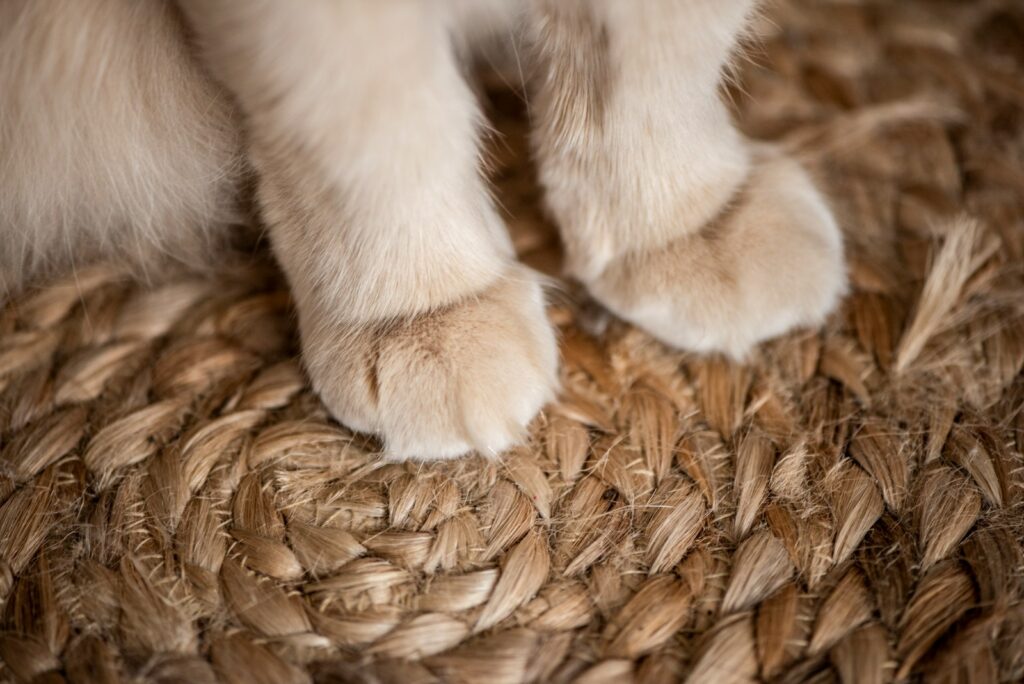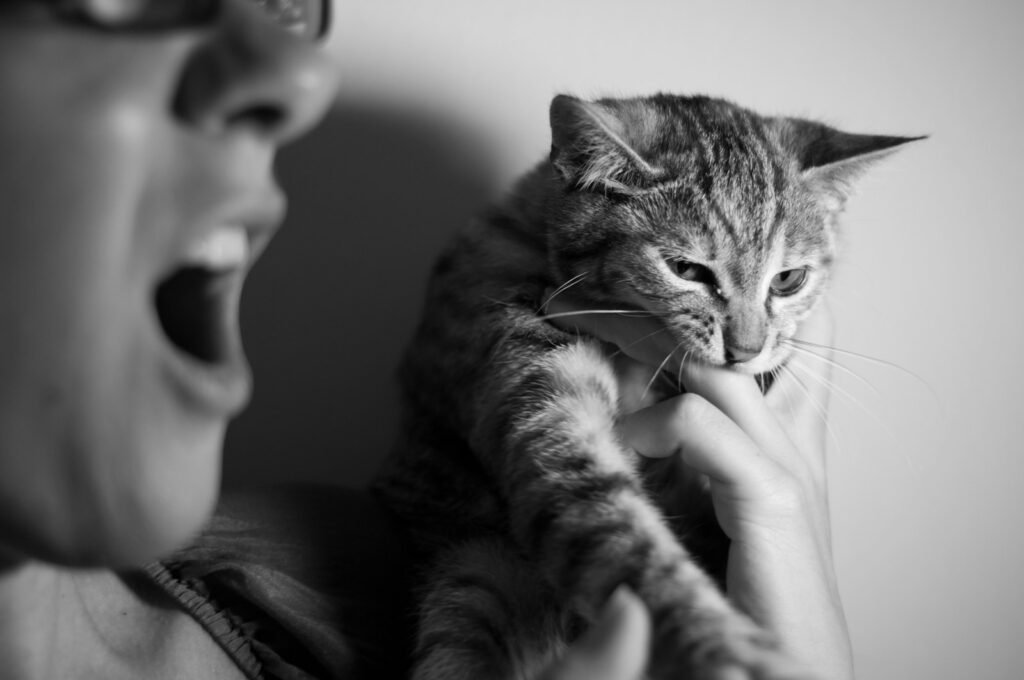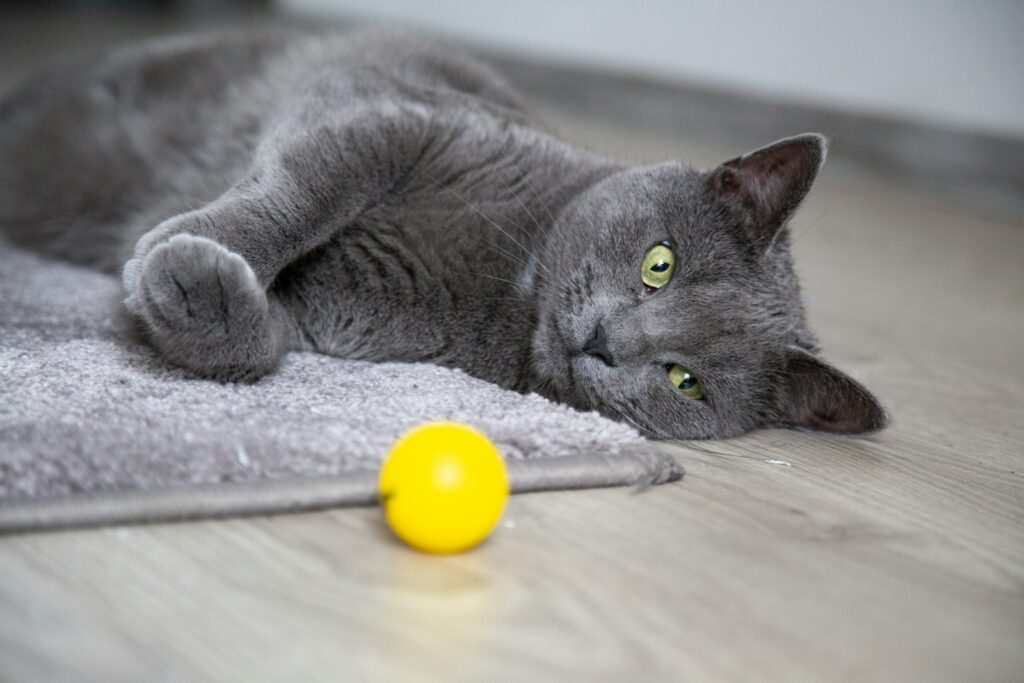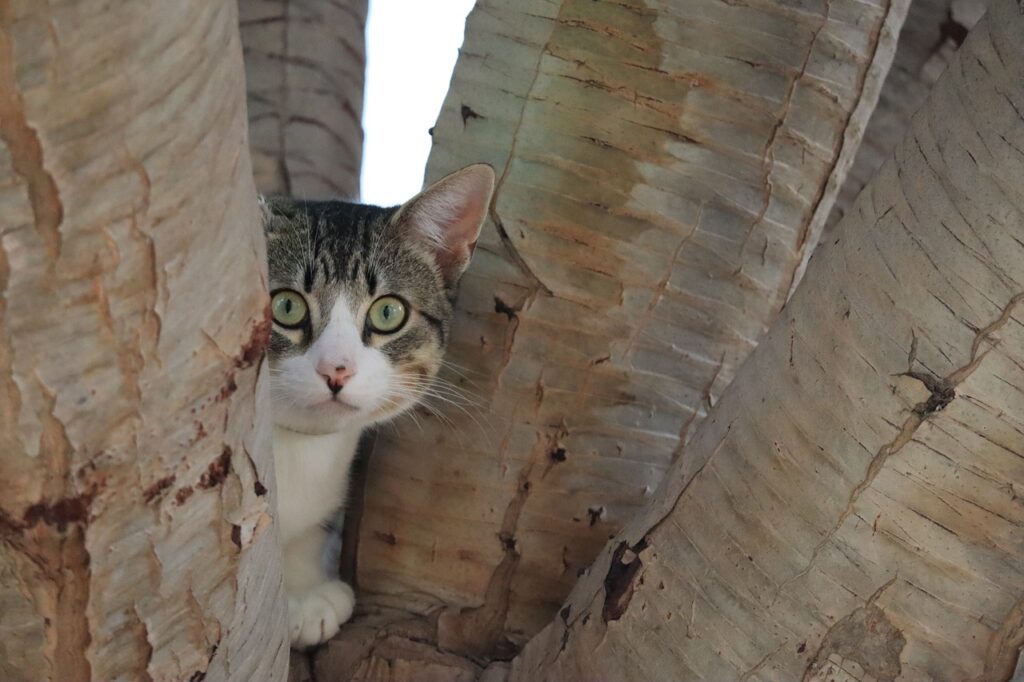Discover the things to never do to your cat. Are you accidentally doing things that could harm or stress your furry friend?
Cats have very specific needs and some big no-nos regarding their care.
By the end of this guide, you’ll be empowered to give your cat the safe, healthy, and happy life they deserve.
10 Things To Never Do to Your Cat

Some common mistakes that well-meaning pet parents make can unintentionally harm or stress out cats.
Discover below 10 things to never do to your cat, from litter box care to avoiding startling behavior.
1) Ignore Their Scratching Behavior

While we love our furniture, our cats have an innate need to scratch that can, unfortunately, damage upholstery and wood.
Never punish your cat for scratching. Or attempt to declaw them, which is an inhumane and unnecessary procedure.
Instead, provide an acceptable outlet, such as a tall, sturdy scratching post. Reward and praise your cat when they scratch their post.
Related: How to Train Your Cat To Use a Scratching Post [2024]
2) Neglect Their Litter Box

Never neglect to scoop and fully change the litter regularly. Aim to scoop 1-2 times daily and empty, wash, and refill with fresh litter weekly for clumping litter. Non-clumping litter may need more frequent full changes.
If you have two cats, you may need to scoop more frequently than once or twice daily to keep up with their output. Get in a daily habit of scooping in the morning and evening, even getting the kids involved to make it a family chore.
Related: Discover How To Clean Cat Litter Trays
3) Force Them Into Things

Cats are prey animals and pressuring them will only increase their anxiety and damage their trust in you. Go slowly, use positive reinforcement training, and allow your cat to set the pace. Forcing will always backfire.
Let’s say that your cat hates their carrier and desperately tries to escape every vet trip. Instead of wrestling them inside, spend weeks desensitizing them with treats and praise anytime they approach, sniff, or step inside the carrier. Only progress when they initiate.
Related: Does Your Cat Trust You?
4) Free Feed Them

While it may be convenient to leave food out all day, free feeding can lead to obesity, digestive sensitivities, and resource guarding. Develop a meal feeding schedule and portion control to maintain your cat’s svelte figure and optimal health.
5) Use of Physical Punishment

Among the many things to never do to your cat is physical punishment.
Never resort to physical punishment like hitting, slapping, or spanking your cat. This will only cause fear, resentment, and damage your bond.
Positive reinforcement training methods focused on rewarding good behaviors are much more effective.
6) Yell at your Cat

Yelling can startle and terrify your cat. They don’t understand that you’re not actually attacking them.
Instead use a calm, quiet voice when communicating. Save your excited, high-pitched tones for praise when training.
Related: How To Tell If Your Cat Likes You [2024]
7) Lock Them Out at Night

Locking your cat out of your bedroom at night can cause anxiety, insecurity, and even inappropriate urination or scratching. Let your cat have access to your room and all their usual spaces 24/7. Provide cozy, safe beds elsewhere if you don’t want them on your bed.
Related: Is It Okay To Let Your Cat Sleep in Bed With You?
8) Ignore When They Want to Play

Cats need regular mentally stimulating playtime to stay happy and healthy. Never ignore them when they bring you a toy or seem to want to engage.
Even a short 5-10 minute play session can satisfy this need before switching to a calmer activity.
Related: Discover 6 Engaging Indoor Cat Activities
9) Startle or Scare Them

Avoid startle or scare your cat. This breaks trust, causes stress, and can provoke defensive behaviors like biting or scratching. Always make your presence calmly known before approaching or touching your cat. Be gentle and respectful of their space and body language cues.
For example, instead of sneaking up to pet your cat while they’re sleeping, first call their name from a distance. Give them time to wake up fully before slowly approaching to stroke and give treats.
10) Overstimulate Them

Pay close attention to signs your cat is overstimulated or has had enough playtime. Never force interaction when your cat is trying to retreat and take a break.
Example signs your cat has had enough:
- Dilated pupils
- Swishing tail
- Flattened ears
- Tense body
- Trying to get away
Calmly give them space when they show the above cues.
Final Thoughts: Things to Never Do to Your Cat
I’ve covered a lot of ground on things you should absolutely avoid doing to your cat. Remember, taking their specific needs into account, giving them choice and control, and making their safety and wellbeing the top priority will ensure your cat stays happy and healthy for years to come.
Let me know in the comments – did you learn something new in this guide? What are your tips for giving cats the care they deserve?
Frequently Asked Questions
What should you do if your cat scratches furniture?
Provide sturdy, appealing scratching posts and reward your cat with treats when they use them. Never punish or declaw.
Can cats share litter boxes?
Multiple cats generally need multiple litter boxes. The rule of thumb is to provide one per cat, plus one extra box in your home.
How often should you clean a litter box?
Scoop solids at least 1-2 times per day. Replace all litter weekly for clumping litters or every 3-5 days for non-clumping.

Leave a Reply